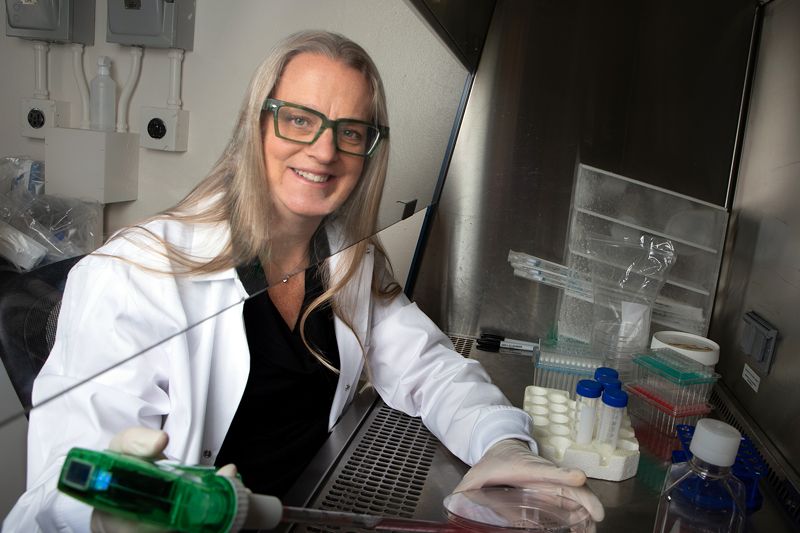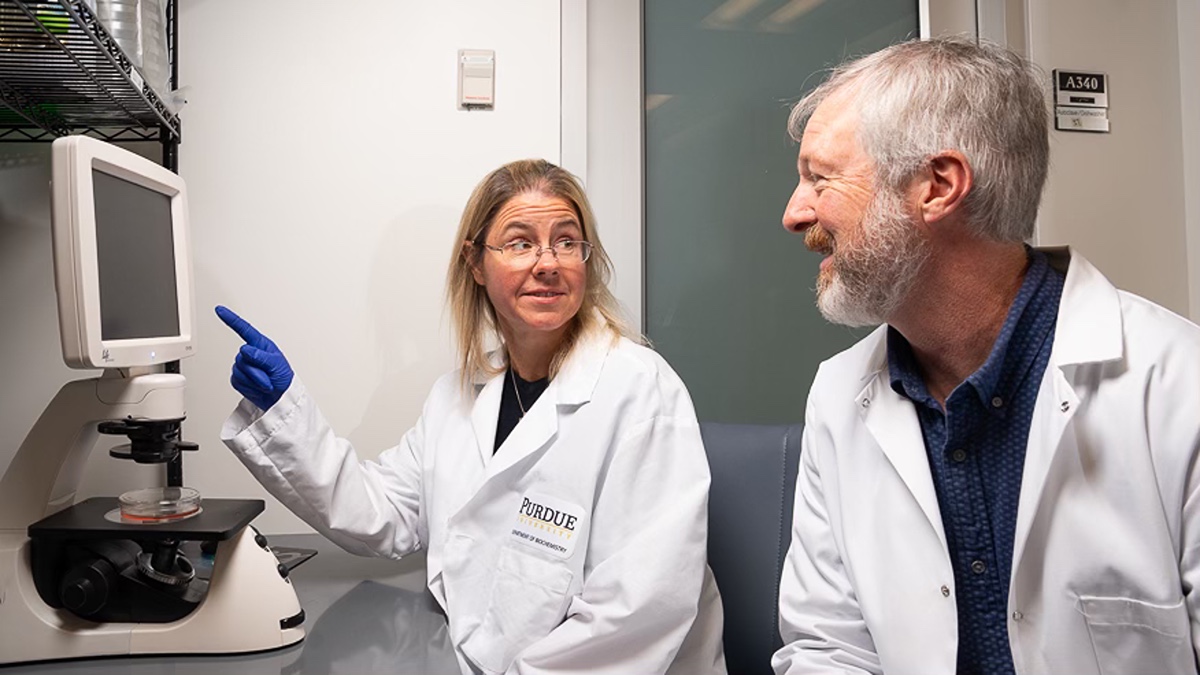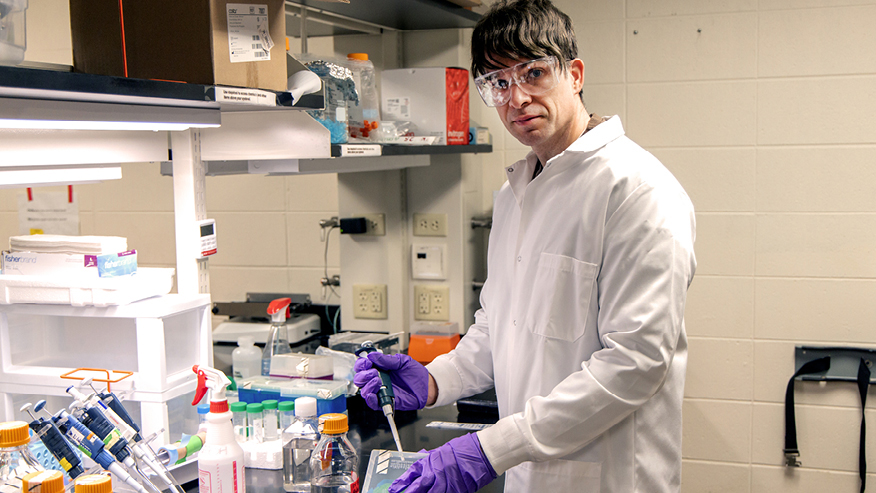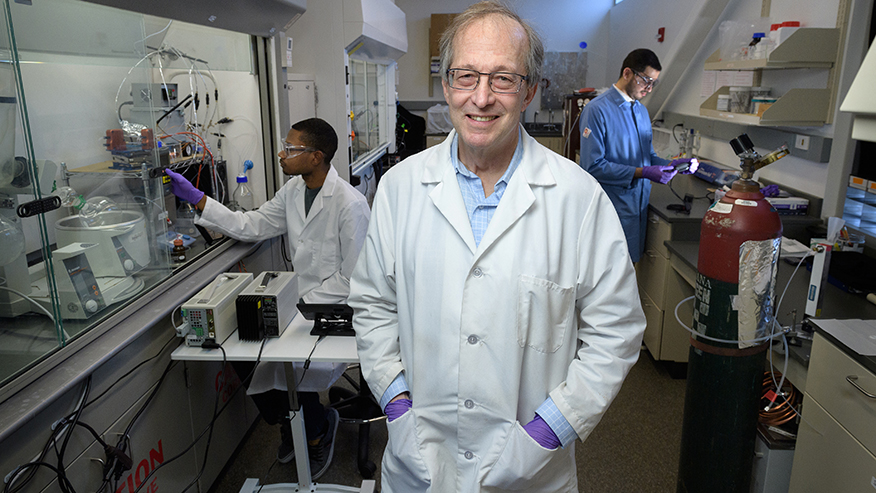impact area
Drug Discovery & Treatment
From uncovering new therapeutic targets to developing FDA-approved cancer drugs, the Purdue Institute for Cancer Research drives innovations that move from bench to bedside. Our scientists collaborate across disciplines to design, test, and refine treatments that improve outcomes and offer hope to patients worldwide.
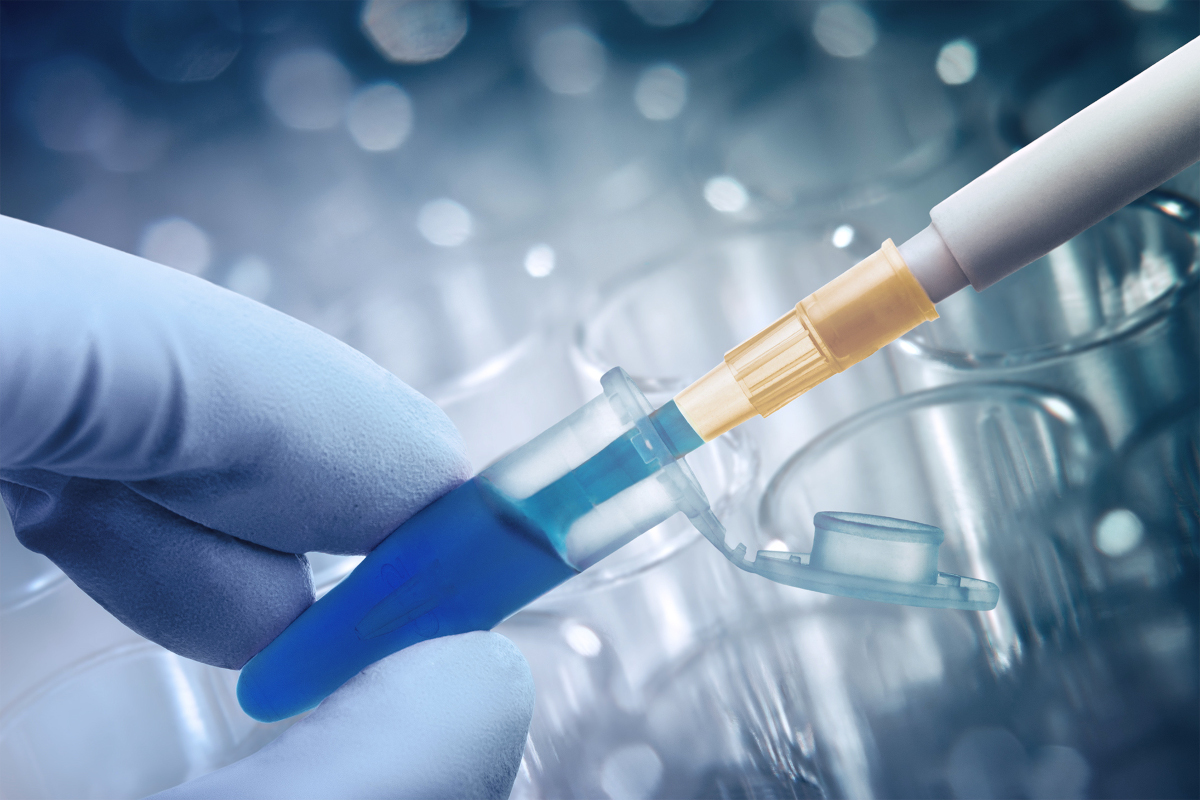
TURNING INSIGHT INTO INTERVENTION
Forging the foundation for tomorrow’s cancer therapies
Behind every effective therapy is a foundation of rigorous, cross-disciplinary science. PICR researchers are designing smarter treatments by first understanding how cancer grows, adapts and survives.
The Purdue Institute for Cancer Research (PICR) scientists are laying the groundwork for cancer treatments that are more precise, more durable, and less toxic. Their work spans the full arc of discovery, from identifying molecular targets and mechanisms of resistance to designing drug candidates and delivery systems that improve therapeutic impact. By integrating strengths in chemistry, engineering, pharmacology and the life sciences, researchers are addressing major hurdles in modern cancer care, such as treatment resistance, limited drug efficacy and challenges in targeting complex tumor environments. These foundational advances drive the development of therapies that improve survival while enhancing quality of life.
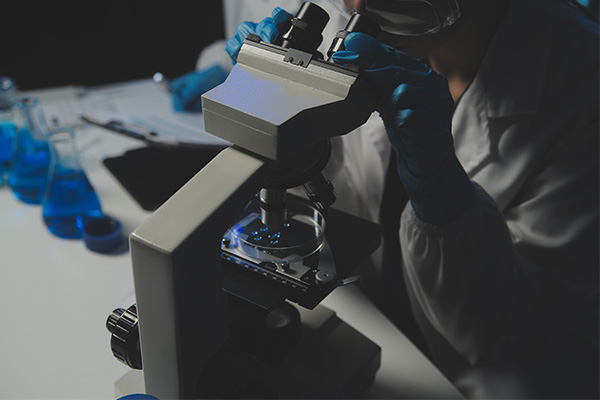
Bench to bedside: FDA benchmarks and breakthroughs in-the-making
Researchers at the PICR are global leaders in drug discovery and development, building upon a decades-long history of innovation at the institute. Discoveries from our investigators have resulted in the creation of FDA-approved treatments that save countless lives around the world.
REAL-WORLD IMPACT
Discoveries that change lives
PICR researchers are bridging the gap between basic science and clinical care by inventing new drugs and advancing them toward therapies that offer better treatment options for patients
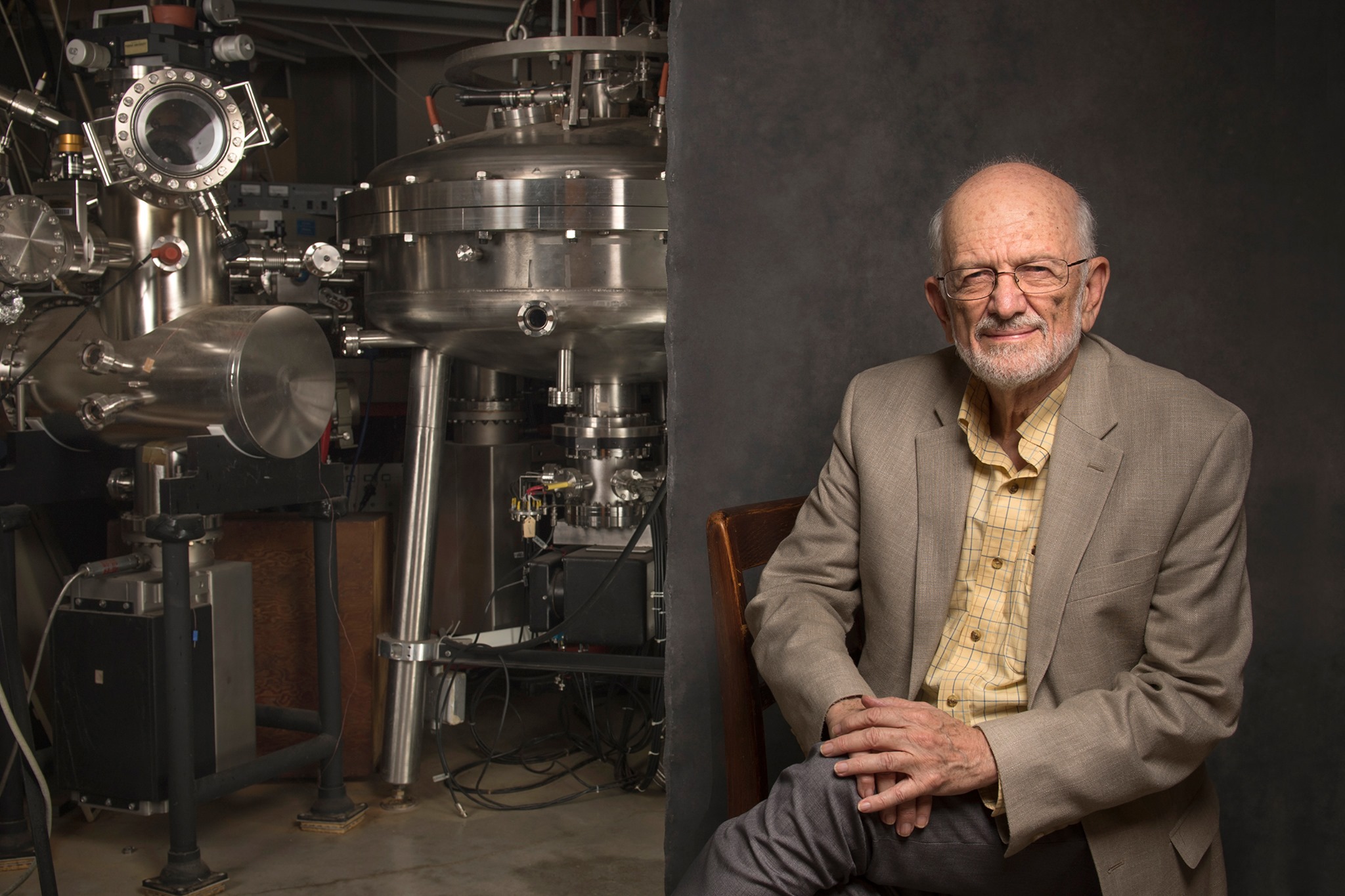
Mass spectrometry and cancer treatment
Henry B. Hass Distinguished Professor of Analytical Chemistry R. Graham Cooks has pioneered new applications of mass spectrometry, transforming it from a laboratory-bound technique into a rapid diagnostic tool with major implications for cancer research. His development of ambient ionization methods, including desorption electrospray ionization (DESI), enables direct analysis of biological tissues without complex preparation. These technologies are helping scientists more quickly evaluate how drugs interact with cancerous tissues and giving surgeons the ability to identify tumor margins with remarkable speed and accuracy. Cooks’ innovations have advanced the frontiers of analytical chemistry and are opening new possibilities for surgical precision and more personalized treatment decisions.
Boilermaker Health Innovations
Boilermaker Health Innovations (BHI) is a unique engine for moving Purdue cancer discoveries closer to the clinic. Established by PICR leadership, BHI helps bridge the critical early-stage development gap by supporting promising drug candidates.
With the ability to license intellectual property from Purdue or file patents directly, BHI is poised to help advance innovative compounds through proof-of-concept studies, providing needed strategic flexibility to keep therapies moving forward through the “Valley of Death” in drug discovery. BHI is dedicated to bringing Purdue’s cancer-fighting technologies to life.
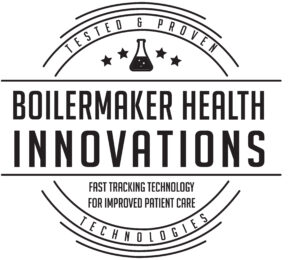
Startups that change lives and support Indiana
PICR scientists continue to establish and launch new companies such as Endocyte and On Target Labs that bring cancer innovations out of the lab and into the world. These startups are developing cutting-edge therapies, diagnostics and delivery platforms while contributing to Indiana’s life sciences economy. By advancing both health outcomes and high-tech entrepreneurship, they’re turning Purdue discoveries into solutions that change lives and create lasting impact across the state and around the world.
Innovation and commercialization
We translate laboratory findings into life-changing commercial therapies that improve health in Indiana and beyond. Through close collaboration with Purdue Innovates and the Office of Technology Commercialization, our scientists have advanced three cancer-fighting drugs and imaging agents that have received a total of four FDA approvals. Startups launched by PICR investigators are bringing novel therapeutics to market, and a strong pipeline of promising drug candidates continues to move toward clinical application.
Inventing better health
Where inventions make a powerful impact
To realize our vision of making all cancers detectable, treatable, and curable, PICR researchers actively pursue patents and transfer their technologies to companies (often their own) for further development. Purdue’s culture of innovation consistently ranks among the best, providing an environment that empowers PICR scientists to translate discoveries into real-world diagnostics and therapeutics that impact lives.
success stories
In the spotlight
From reprogramming RNA to harnessing the immune system, Purdue Institute for Cancer Research scientists are pioneering treatments that push beyond the limits of current cancer care. These stories highlight breakthroughs in targeted drugs, novel delivery systems, and AI-powered discovery—advances that are moving promising ideas from the lab toward real-world impact.
ARTIFICIAL INTELLIGENCE
Harnessing AI to accelerate science
PICR researchers apply machine learning, bioinformatics, and advanced modeling to uncover cancer-driving mutations, predict treatment responses, and speed drug discovery. From tumor genomics to imaging analytics, these tools are transforming how we understand and target cancer at every level.

Using AI to speed RNA-targeted drug design
Daisuke Kihara develops machine learning tools that accelerate drug discovery by predicting how RNA-binding molecules interact with complex structures. His team integrates cryo-EM imaging data with AI-powered modeling to design therapeutics faster and with greater precision—paving the way for new treatments that target RNA-driven cancers.
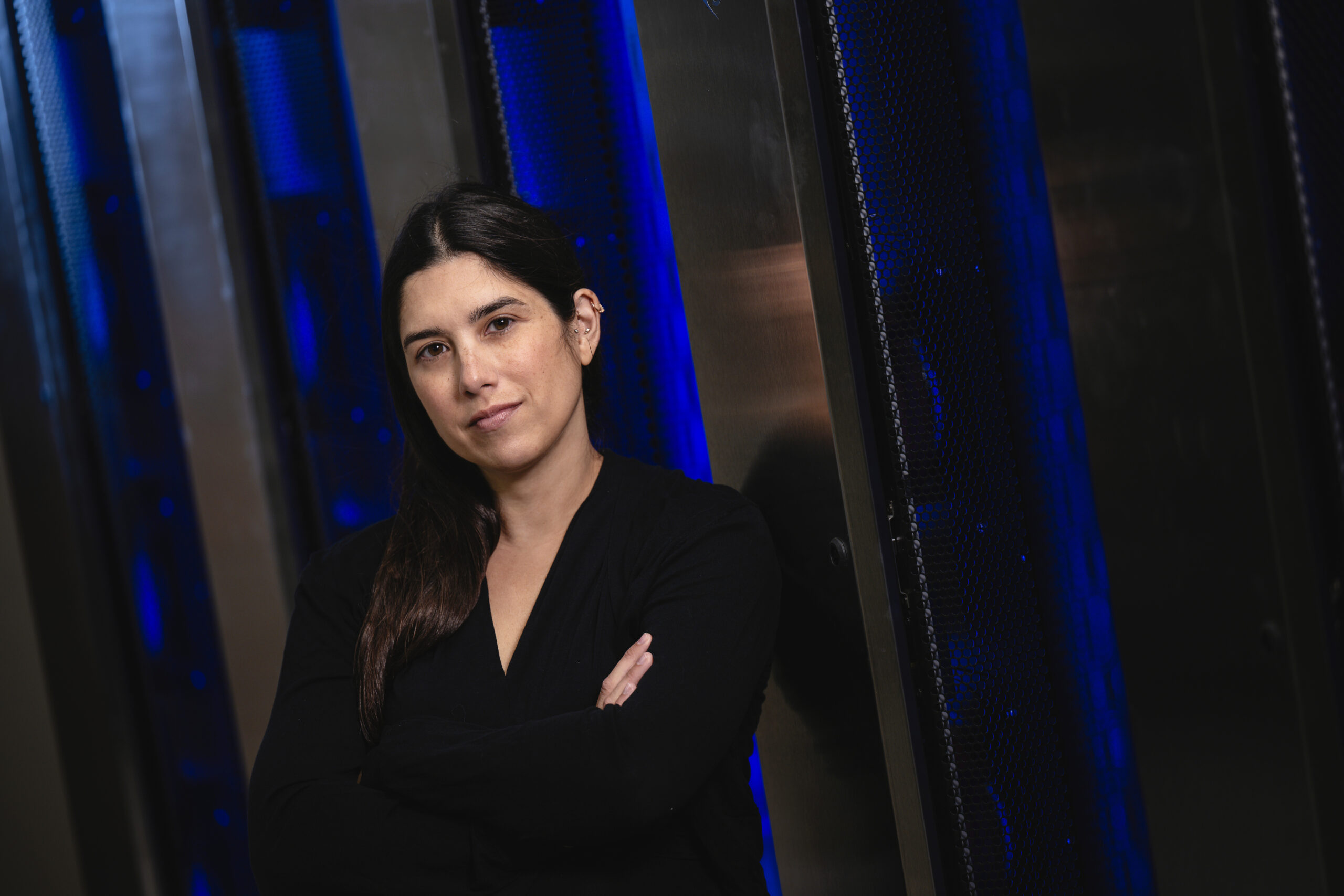
Predicting cancer behavior through data
Nadia Lanman uses bioinformatics and machine learning to build predictive models of cancer behavior, integrating tumor profiling data across human and veterinary cancers. As director of PICR’s Computational Genomics Shared Resource and co-manager of the Collaborative Core for Cancer Bioinformatics with IU Simon Comprehensive Cancer Center, she builds models that reveal how tumors evolve and respond to treatment in both humans and animals.
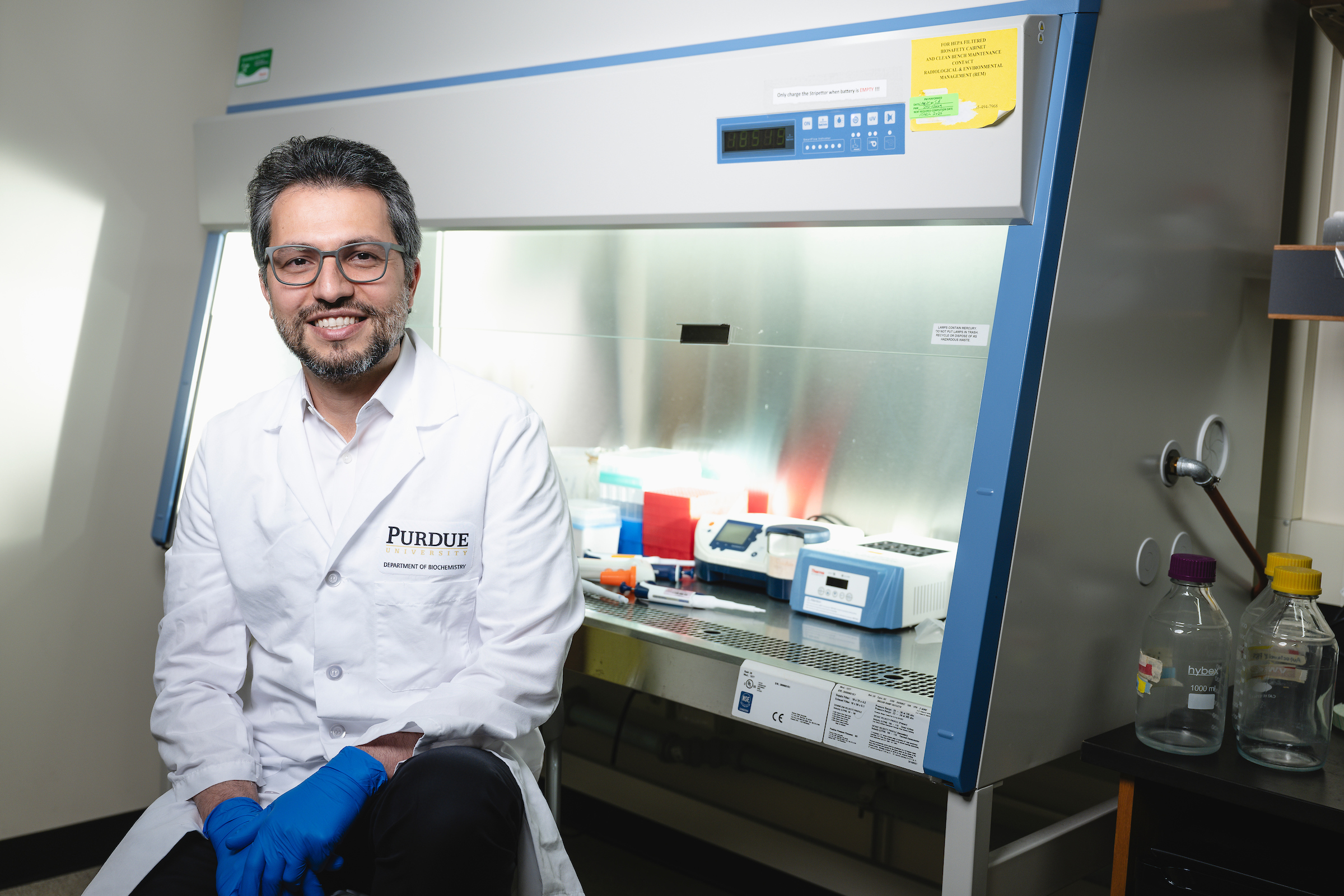
Revealing hidden drug potential with AI
Majid Kazemian applies AI to analyze gene regulation networks and immune cell pathways, uncovering how inflammation and genetic activity drive tumor sensitivity and progression. He recently developed a machine learning tool that revealed unexpected benefits of a colon cancer drug, demonstrating how AI can expose untapped therapeutic opportunities hidden in complex datasets.
YOU CAN FUEL TOMORROW’S cancer TREATMENTS
Support innovative science and help move new drugs from the lab to patient lives
Contact Us
Get in touch
Phone: 765-494-9129
Fax: 765-494-9193
Email: cancerresearch@purdue.edu
Meet our team
Find us
201 S. University St.
Hansen Life Sciences Bldg, Rm. 141
West Lafayette, IN 47907
